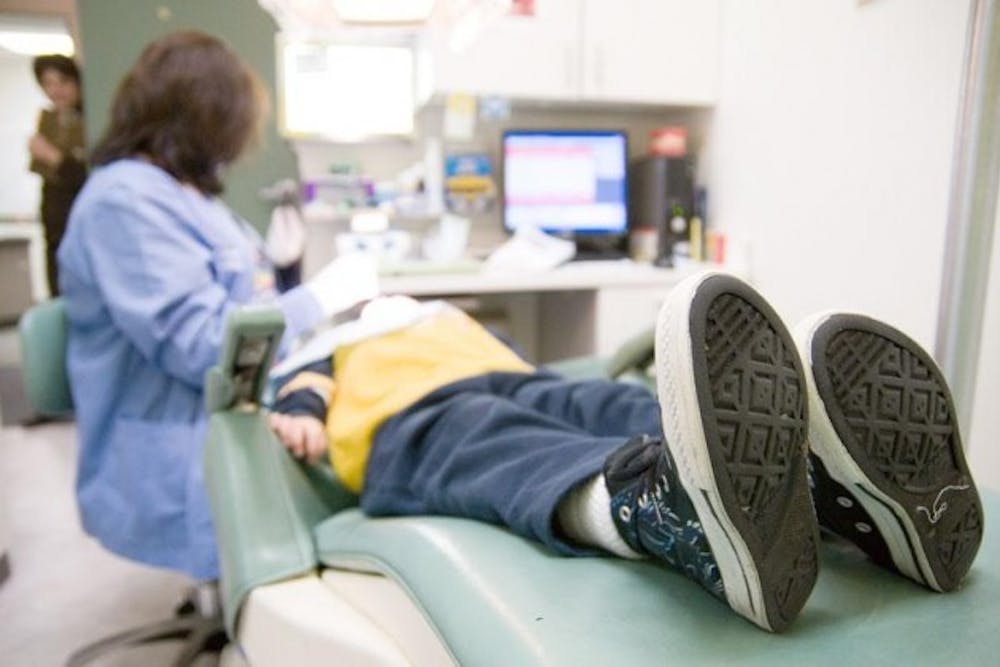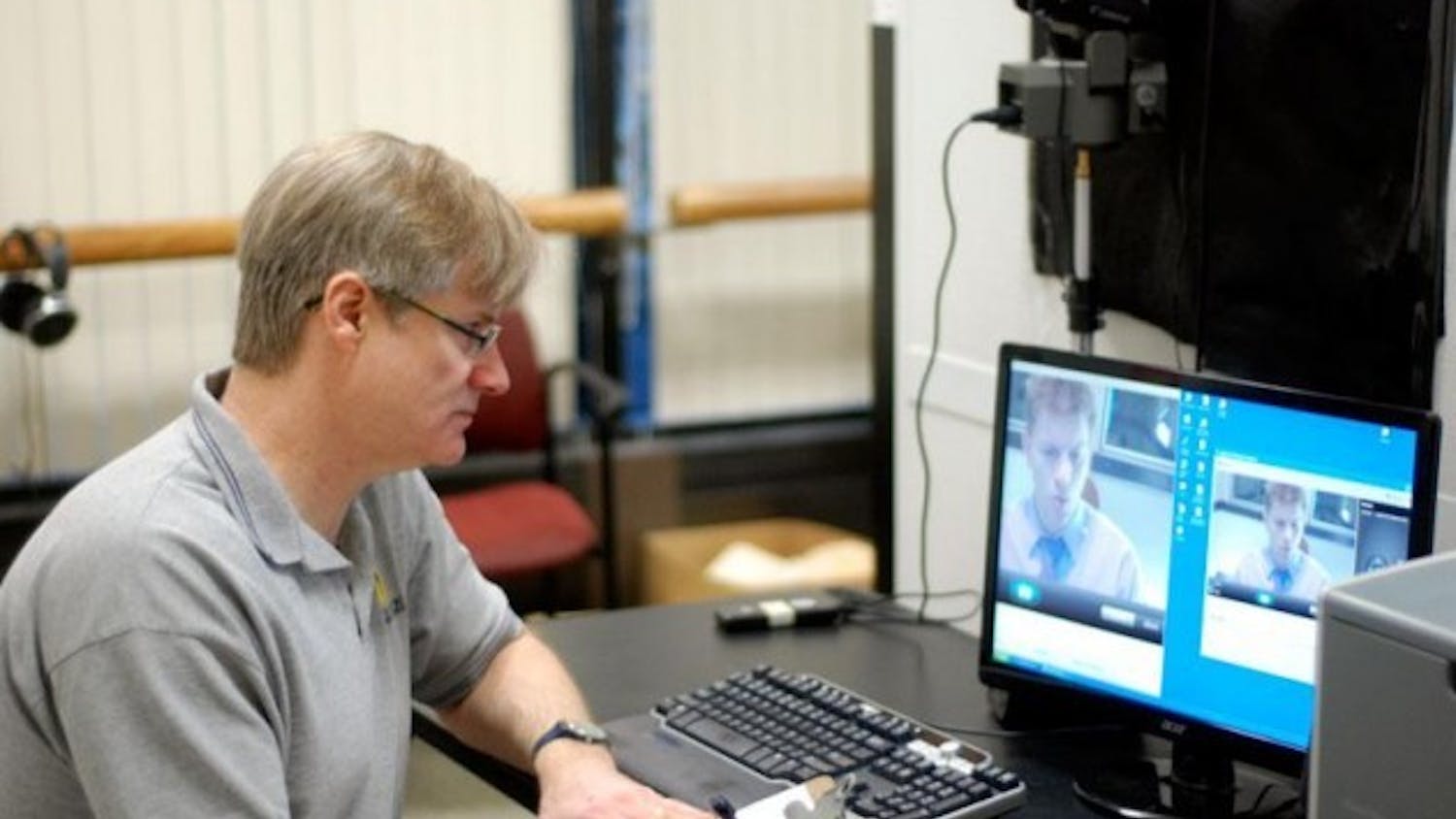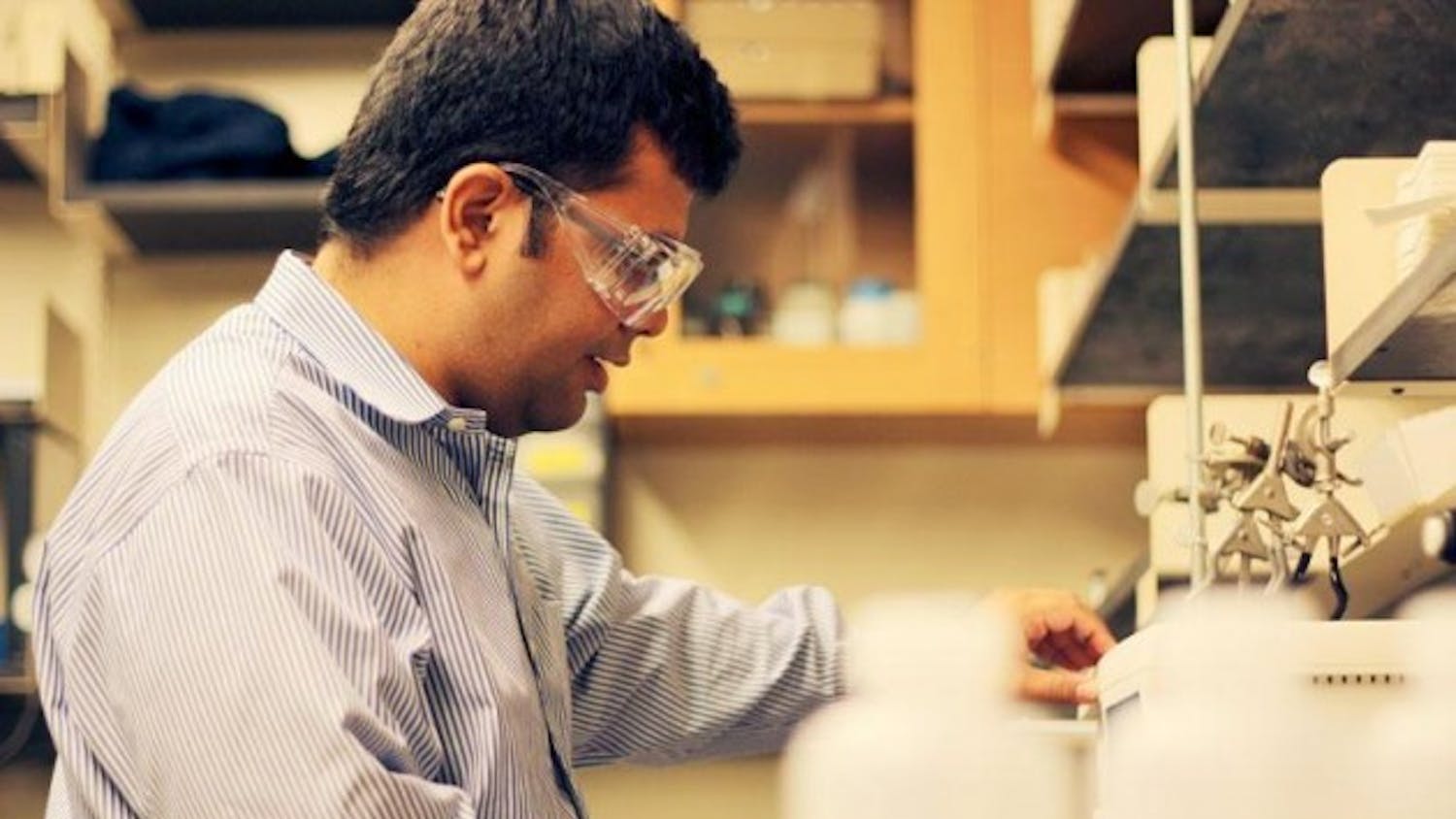Yanan Li, a senior business major, heard free dental exams would be going on at UB's School of Dental Medicine. He hadn't been to the dentist since he was a child, so he figured a stop at the clinic wouldn't hurt. Although he's a smoker, Li thought he had decent dental health.
Li was told he had four cavities, unhealthy gums and deeply stained teeth. His dental issues were treated, but the issues weren't bad enough for the dental students. They wanted people whose dental health was much worse.
The UB School of Dental Medicine is offering free dental exams and x-rays until March 10 as a screening method to find patients for an upcoming licensing exam. The Western Regional Examining Board (WREB) is a licensing exam that dental students have the option to take at UB. Although the exam is not required to practice in New York State, it is a requirement in 30 other states; many students choose to take it in case they decide to work outside of the New York.
The students organized these free dental exams in hopes of finding people with bad dental health who qualify to be patients for the licensing exam.
Currently, dental students are screening for patients with certain cavities and level of gum disease. These patients need to be available from March 11 to March 13, when the exam will take place. They are being extremely picky, according to Aki Osada, a graduate student in the dental school.
"The cavities have to be perfect for us," Osada said. "They cannot be too small or too large and they also have to be in a certain location ... if we find a patient with cavities that qualify, we will offer them a free filling to be done for our licensing exam in March."
In addition to having "perfect cavities" and being available during spring break, patients must also meet a checklist of additional criteria. To qualify, a patient must be between 18 and 65 years old, have at least two of the perfect cavities or a certain advanced level of gum disease, have not seen a dentist within two years or more and must not have a latex allergy.
Although Li didn't qualify to participate in the licensing exam, he found the dental student who worked on his teeth thorough and helpful. The student even addressed other health concerns such as Li's smoking habits. The student's detailed and extensive knowledge of the subject was impressive and the added presence of licensed dentists made Li feel more comfortable, he said.
"If I had to point out the most positive things about the screening, I would say that it was pretty impressive that there may be one or more professors walking around and checking what every dental student is doing and how they are doing," Li said. "Seeing the professors walking around makes you feel more secure and assured."
Li feels bad his cavities didn't qualify him to help out.
Cavities must be "virgin," meaning they have never been restored or filled before, and the damaged tooth needs to have an undamaged "opposite tooth" that comes into contact with the damaged one all the time. Patients are also more likely to qualify for a free treatment if they are healthy and young.
"We cannot see patients that have high blood pressure, uncontrollable diabetes, neck or back pain or any other high-risk medical condition that would hinder them from sitting for a long time [because] the licensing exam takes about three hours," Osaka said.
Patients who qualify have not been easy to find. UB dental students are working to get as many patients in for screenings as possible, starting the first week of the spring semester.
While the clinic may become busy at times and constant interaction between students and licensed dentists may take place, Osada sees it as "win-win" situation for both parties; patients can receive free dental work and find out more about his or her oral health, and dental students can search for all of the qualifying cavities and diseased gums they need to pass the licensing exam.
Thomas Chacko, a first-time patient and graduate student in the School of Social Work, found the screening informative and eye-opening. As an international student, Chacko hadn't made any concrete decisions regarding dental care and saw the free screening process as an opportunity to see what UB's dental school offers.
During the screening, he learned a cavity he had gotten filled was done improperly and was causing problems with his teeth. Ultimately, Chacko did not qualify for the free licensing exam but felt he received quality service that made him consider returning in the future.
Each dental student generally receives two patients each day, adding up to a total of approximately 10 per week, according to Cheryl Poon, a graduate student in the UB School of Dental Medicine. As a result, each student has already had one-and-a-half to two years of practicing on patients and learning how to carry out operations. This will help the students once they venture out into the "real-world," according to Poon.
While anyone can come in and go through the screening process, Jerod Less, a graduate student in the UB Dental School who is preparing to take the WREB exam, believes UB students will benefit the most from it.
"When you are a student, it is hard," Less said. "You're studying all semester, and sometimes you just don't have enough time to go to the dentist. But with what we are offering, students don't have to go too far to get quality dental care. They can come right to South Campus."
Interested patients may contact Poon directly at wrebexam2013@gmail.com for more details and to set up a screening.
Email: features@ubspectrum.com
Scavenging for cavities
UB School of Dental Medicine offers free screenings

Comments




